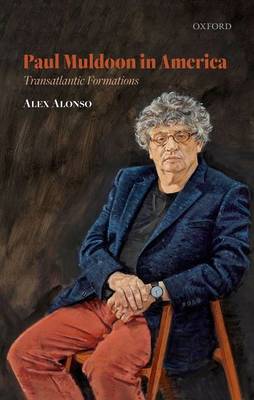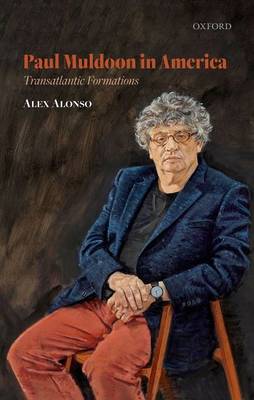
- Retrait gratuit dans votre magasin Club
- 7.000.000 titres dans notre catalogue
- Payer en toute sécurité
- Toujours un magasin près de chez vous
- Retrait gratuit dans votre magasin Club
- 7.000.000 titres dans notre catalogue
- Payer en toute sécurité
- Toujours un magasin près de chez vous
Description
Paul Muldoon was looking west long before he left Ireland for the United States in 1987, and his Transatlantic departure would prove to be a turning point in his life and work. In America, Muldoon's creative repertoire has extended into song writing, libretti, and literary criticism, while his poetry collections have extended to outlandish proportions, typified in recent years by a level of formal intensity that is unique in modern poetry. To leave Northern Ireland, though, is not necessarily to leave it behind. Muldoon has spoken of his 'sense of belonging to several places at once, ' and in the United States he has found another creative gear, new modes of performance facilitated by his Irish émigré status. Focusing on the protean work of his American period, this book explores Muldoon's expansive structural imagination, his investment in Eros and errors, the nimbleness of his allusive practice as both a reader and writer, and the mobility of his Transatlantic position. It raises questions about the Irish poet as a westward voyager, about Irish-American cultural exchange, and how departures for Muldoon seem to be a precondition for return, indeed returns of many different kinds. It also draws on archival research to produce provocative new readings of Muldoon's later works. Exploring the poetic and literary-critical 'long forms' that are now his hallmark, this volume places the most significant works of Muldoon's American period under the microscope, and opens up the intricate formal schemes of a poet Mick Imlah credits as having 'reinvented the possibilities of rhyme for our time.'
Spécifications
Parties prenantes
- Auteur(s) :
- Editeur:
Contenu
- Nombre de pages :
- 240
- Langue:
- Anglais
Caractéristiques
- EAN:
- 9780198859659
- Date de parution :
- 09-11-21
- Format:
- Livre relié
- Format numérique:
- Genaaid
- Dimensions :
- 147 mm x 221 mm
- Poids :
- 408 g







